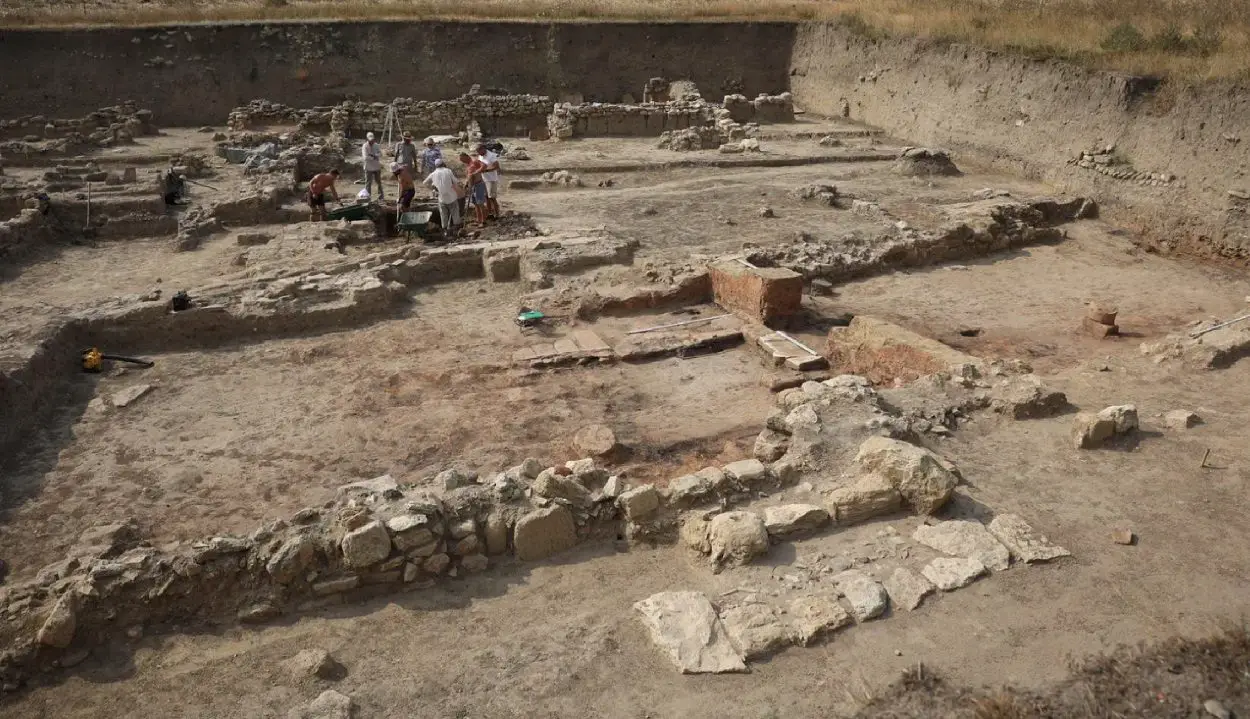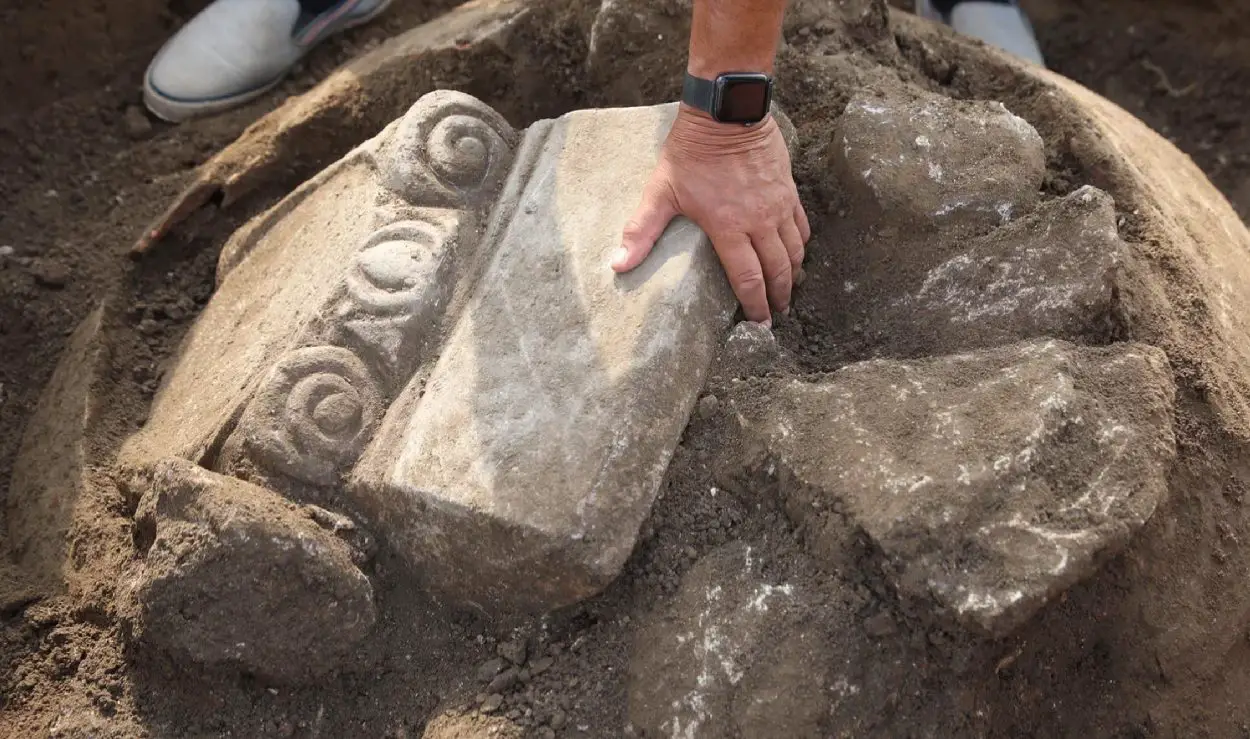A team of archaeologists from the Phanagoria archaeological expedition have found one of the world’s oldest synagogues at the ancient Greek city of Phagoria, located on Russia’s Taman Peninsula.
According to ancient sources, Phanagoria was founded in 543 BC by Teian colonists who fled Asia Minor in consequence of their conflict with the Persian king Cyrus the Great. The city served as a bustling hub for trade and travel, connecting the coastal areas of the Maeotian marshes with the regions located to the south of the Caucasus mountains.
With the support of the Oleg Deripaska Volnoe Delo Foundation, archaeologists have found traces of the synagogue’s foundations and walls, in addition to marble menorahs, liturgy tables, and marble stele fragments.
The synagogue dates from the Second Temple Period (597 BC to AD 70) and stood for approximately 500 years on the shores of the Black Sea, until Phanagoria was sacked and destroyed by the invading Huns. By the 7th century, the city recovered from a turbulent period of invasion, and served as the capital of Old Great Bulgaria and became a Byzantine dependency.

One of the stele fragments dates from the 5th century AD and has the inscription “synagogue” written in Hebrew, while other fragments have inscriptions stating “house of prayer” and “synagogue”, which date from around AD 16 to 51.
The synagogue is a rectangular structure, measuring 21 metres by 6 metres, and with two chambers each exceeding 60 square metres. Based on the architectural finds, the interior would have contained marble columns, walls decorated with paintings and tiles, and ornamental marble menorahs.

According to the researchers: “The presence of a robust Jewish community within the city already in the 1st century AD is corroborated by depictions of menorahs on amphorae and tombstones from that era. Historical records from the medieval period also affirm the notion that Jews constituted a significant portion of the city’s inhabitants. Notably, Theophanes, an 8th-century Byzantine chronicler, and Ibn-Hordadbeha, a 9th-century Arabian geographer, both referred to Phanagoria as a “Jewish city”. Contemporary historians believe that the Jewish community of Phanagoria mirrored the city’s cosmopolitan character.”
Oleg Deripaska Volnoe Delo Foundation
Header Image Credit : Oleg Deripaska Volnoe Delo Foundation





